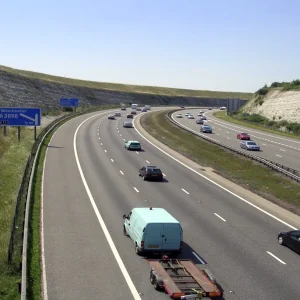
The van and light commercial vehicle (LCV) market is a critical component of the UK’s economy, supporting various industries from logistics and delivery services to small and medium-sized enterprises (SMEs). However, this sector faces a growing threat from misinformation and disinformation, which can significantly impact consumer behaviour, regulatory frameworks, and market dynamics. This article delves into the effects of false information on the van and LCV market, examining its sources, consequences, and potential strategies for mitigation.
Understanding Misinformation and Disinformation
Misinformation refers to false or inaccurate information spread unintentionally, often due to a lack of knowledge or verification. Disinformation, on the other hand, involves the deliberate dissemination of false information with the intent to deceive or manipulate.
In the context of the van and LCV market, both forms can arise from various sources, including social media, news outlets, industry reports, and even word of mouth. The motivations behind disinformation can range from economic gain to political influence, while misinformation often spreads due to misunderstanding or incomplete information.
Sources of Misinformation and Disinformation
Social Media
Social media platforms are a significant source of misinformation and disinformation. The rapid sharing of content without proper fact-checking can lead to widespread false narratives about van and LCV safety, performance, and regulations. For example, misleading posts about the environmental impact of diesel engines versus electric vehicles can skew public perception and consumer choices.
News Outlets
While reputable news organisations strive for accuracy, not all outlets adhere to rigorous fact-checking standards. Sensationalist headlines and articles can propagate misinformation, especially when complex issues like emissions standards or Brexit-related trade impacts are oversimplified or misrepresented.
Industry Reports and Publications
Even within industry-specific reports, data can be misinterpreted or presented out of context, leading to misinformation. Discrepancies in market analysis, sales forecasts, or technological advancements can confuse stakeholders and affect market strategies.
Word of Mouth
Personal experiences and anecdotal evidence, shared among peers or through online reviews, can also spread misinformation. While these accounts provide valuable insights, they can sometimes lack accuracy and lead to generalisations that do not reflect the broader market reality.
Consequences of Misinformation and Disinformation
Consumer Behaviour
Misinformation can significantly influence consumer behaviour in the van and LCV market. False claims about vehicle reliability, maintenance costs, or safety features can deter potential buyers or push them towards suboptimal choices. For instance, exaggerated concerns about the maintenance costs of electric vans compared to diesel models can slow the adoption of greener technologies.
Regulatory Impact
Disinformation can affect regulatory frameworks and policy decisions. Policymakers rely on accurate data and analyses to draft legislation. If influenced by false information, regulations may not effectively address market needs or environmental goals. For example, misconceptions about the feasibility of electric vehicle infrastructure can lead to inadequate support for charging networks, hindering the transition to electric LCVs.
Market Dynamics
The spread of misinformation can distort market dynamics by influencing stock prices, investment decisions, and competitive strategies. Companies may react to perceived market trends driven by false information, leading to misallocation of resources. Moreover, disinformation campaigns targeting specific brands or technologies can unfairly damage reputations and market positions.
Case Studies
Electric Vehicles and Emissions Standards
A prevalent example of misinformation in the van and LCV market revolves around emissions standards and the adoption of electric vehicles (EVs). Misinformation about the environmental impact of EV production versus diesel vehicles has been widespread. Studies have shown that while the production of EVs involves higher initial emissions, their overall lifetime emissions are significantly lower than those of diesel vehicles. However, distorted information can lead to consumer reluctance and slow market transition.
Brexit and Trade Uncertainty
The UK’s exit from the European Union has been a fertile ground for misinformation and disinformation, particularly concerning trade and regulatory changes. False information about tariffs, supply chain disruptions, and vehicle standards post-Brexit has created uncertainty among manufacturers and consumers alike. This uncertainty can delay investment decisions and complicate long-term planning for businesses in the van and LCV sector.
Strategies to Mitigate Misinformation and Disinformation
Fact-Checking and Verification
Encouraging rigorous fact-checking and verification processes within media outlets and industry publications can help reduce the spread of misinformation. Fact-checking initiatives and partnerships with credible organisations can provide accurate information and counteract false narratives.
Public Awareness Campaigns
Raising public awareness about the risks and impact of misinformation and disinformation is crucial. Educational campaigns can help consumers and stakeholders critically assess the information they encounter and rely on verified sources.
Collaboration with Social Media Platforms
Working closely with social media platforms to identify and counteract false information can mitigate its spread. Platforms can implement stricter content moderation policies and promote reliable sources of information about the van and LCV market.
Industry Transparency
Greater transparency within the industry can build trust and counter misinformation. Companies should openly share accurate data on vehicle performance, environmental impact, and regulatory compliance. Transparent communication can help correct false perceptions and provide a reliable foundation for consumer and policymaker decisions.
Conclusion
The impact of misinformation and disinformation on the van and light commercial vehicle market in the UK is profound and multifaceted. From distorting consumer behaviour and regulatory frameworks to affecting market dynamics, false information poses significant challenges. Addressing these challenges requires a concerted effort from industry stakeholders, media organisations, social media platforms, and policymakers. By fostering a culture of transparency, accuracy, and critical thinking, the sector can mitigate the adverse effects of misinformation and ensure a more informed and resilient market environment.





